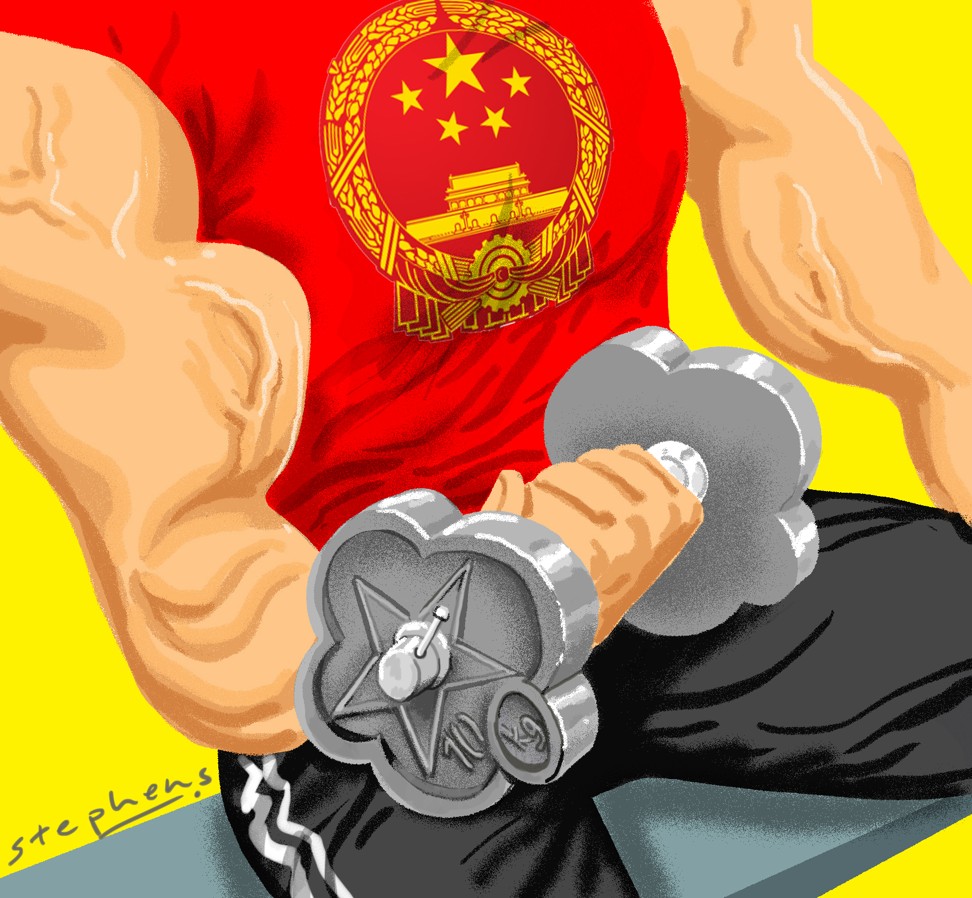
Why Xi Jinping needs a stronger Communist Party to achieve his Chinese dream
Deng Yuwen says strict internal governance and discipline are clearly the top priority for President Xi Jinping, the latest among generations of Chinese leaders who believe China’s prosperity is inexorably linked to the Communist Party

So, what will be the top priorities for Xi and the party in the next five years?
Top of the list will be to improve governance of the party, revive its vigour and make it the mainstay of a country practising socialism with Chinese characteristics. The second priority is to propel economic reform and development to achieve the goals set by the party for its first centennial, and lay the foundation for the bicentenary. Third is to improve China’s diplomatic role, elevate its global governance and create a favourable external environment for the country’s rise. The fourth priority is for Xi to identify and nurture a loyal successor.
The party has always said it is the only one that can handle issues in China well. If the party thrives, the country prospers; if the party gets weaker, the country declines. That has been the deep-rooted conviction of generations of party leaders, and especially Xi.
President Xi Jinping: the first five years
Seven things you need to know about Xi Jinping’s vision of a ‘new era’ for China
It is under these circumstances that a set of Xi’s ideology has been developed, to be instilled into members of the party and thus strengthen the whole. The next five years will be critical for Xi, to truly unify the party and the country using his ideology. If he fails, the people, especially party members, will not recognise his ideology or his Chinese dream, nor strive hard under the party’s leadership. The dream might be delayed, or even die.

Party governance is Xi’s top priority for the next five years; his report has already revealed as much. To work with iron, you must be tough yourself, the report said.
It also said that, to unite and lead the people in a great struggle, undertake a noble cause or realise a great dream, the party must uphold and improve its leadership and keep getting stronger.
China’s anti-graft efforts since the 18th National Party Congress
Xi’s report said the party should recognise the complicated environment in which it rules, as well as the complex factors that affect its superiority or weaken its purity. There are serious defects in the party ideology, organisation and style of work that have yet to be rectified.
Therefore, Xi called for an awareness of the long-term challenges, including those relating to governance, reform and the market economy, as well as external factors.
He also called for a profound understanding of the severity of the dangers facing the party, such as inefficiency, isolation from the masses, corruption and other negative elements.
The party was urged to rise to the challenges, remain strategically focused, and enforce internal discipline. Thus, strict governance of the party will not stop. The last chapter of the report elaborated how this could be achieved.
Xi Jinping Thought – the Communist Party’s tighter grip on China in 16 characters
Indeed, strict governance of the party is one of 14 key principles laid out to build socialism with Chinese characteristics in the new era. The first principle is that the party must lead everything in China, while the last relates that the party should be governed strictly. For the first principle to work, the last one must be practised. This new party-building project will play a pivotal role in the new era, the report said.
Group activities by Standing Committee members following a party congress have significant symbolic meaning, and often indicate the priorities and policies likely to emerge over the following five years.
After the 18th party congress, for instance, Xi led Standing Committee members to visit “The Road to Rejuvenation” exhibition at the National Museum, which highlighted the goals of his Chinese dream.
President Xi Jinping visits the birthplace of the Communist Party
With the visit, Xi may well have been urging party members to remember the original intent behind its establishment. He might also want members to start from that point and turn the party into a popular, well-organised ruling power with strong leadership skills.
How to read Xi Jinping’s status boost and power shuffle
Xi’s report to the congress also emphasised the prevention of, and opposition to, a variety of issues, from individualism, decentralisation and liberalism, to selfish departmentalism, unprincipled behaviour and factionalism. And it opposed any acts of duplicity or double-dealing. That suggests such phenomena are common in the party.
There are still ambitious schemers and conspirators in the party
As the political development project has yet to produce results to ease Xi’s concerns, measures to strengthen party discipline, such as the anti-corruption campaign, will continue.
Xi is clearly determined to build a team of party members, especially senior cadres, thinking and acting together, and so strict party governance will continue to be his top priority for the next five years.
Xi might also see political loyalty and his political ideology as key elements in his political development project.
So, while Xi is likely to maintain his anti-corruption campaign or intensify it in some ways, its overall scale is likely to diminish.
Deng Yuwen is a researcher at the Charhar Institute think tank. The views expressed in this article are his own. This article is translated from Chinese

